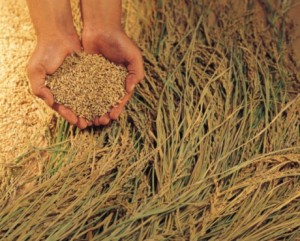
the food industry , a strategic sector for the economy Italian, now it aims to combine technological innovation and national culinary tradition. Tradition that also passes through the recovery and enhancement of local crops, until recently confined to productive niche contexts but are beginning to offer attractive opportunities for producers, processors and consumers. This is what is happening in Sicily, where we witness the return of the ancient local cultivation of grain, of which the island is particularly rich. The diversity of climates and soils of the island has fostered over time the selection of several ecotypes, around which are accrued knowledge and centuries-old knowledge.
In the run in the production and refinement standardization of the first-war, these wheats were gradually abandoned and replaced with others from higher yields and better lent themselves to the “modern” food technology. Today Timilia, Russello, Perciasacchi, Majorca, Margherito, Biancolilla are just a few of the more than fifty Sicilian variety that they find a place of respect in the cereal landscape, with positive effects ranging from biodiversity recovery of agricultural systems, the protection of the cultural wealth of the territory , to health benefits.
Several studies seem to show that the ancient grains have a higher digestibility of gluten which, despite being present in higher quantities than the modern varieties, shows a lower content in amino acid sequences responsible for the gluten sensitivity . These grains typical of the Sicilian tradition return to pasta, “Made in Italy” excellence, southern identity, recovering the threads of a story across the island dating back to Ruggero II, when, a century before Marco Polo’s journey to China , an Arab geographer wrote for the first time of “… a food of flour in the form of thread,” prepared around Trabia.

the revaluation of these ancient wheats has a range of economic and productive effects for the entire supply chain. their cultivation is ideal for organic farming systems: having evolved in Sicily, these varieties fit to the growing environment and require less energy inputs (such as fertilizer), also allow you to diversify agricultural production, expanding the range of processed products and thus representing a driving force for small local economies and a source of income that can improve socio-economic conditions of rural areas. the road of ancient grains and their supply chain, however, it is all uphill and there is still much to do to defend this heritage by cunning and protect the grains from chain actors who have little or nothing to do with the old ones. “… The key issue is to promote the Register of Conservation by Variety, that is a national list of varieties or landraces of agricultural species, native or not, seamlessly integratesi in specific local and regional farming systems are threatened by genetic erosion and economic interest, scientific, cultural or landscape (Law 46/2007).
the registration takes place according to the procedure established by Legislative Decree 149/2009, it requires a description of the local varieties according International rules (guidelines of the International Union for the protection of new varieties of plants (UPOV) listed in Annex II to Directive 2003/90 / EC), which allow a specific technical-scientific commission to assess the actual distinctness of the variety from another of the same species. Unfortunately, after an encouraging start, which saw in 2014 the registration of three Sicilian ancient grains (Majorca, Timilia and Perciasacchi), the jury came into stand by, slowing down even the seed certification, which fugherebbero doubt to consumers about the variety used, while tracking. “
Valeria Urso
of grains and flours characterization laboratory technician, Molini Riggi M. & amp; A. Brothers, Caltanissetta
© All rights reserved

donations can be made:
* With credit card (via PayPal): click here
* by bank transfer : IBAN: IT 77 Q 02008 01622 000 110 003 264
indicating as reason: support Ilfattoalimentare
No comments:
Post a Comment